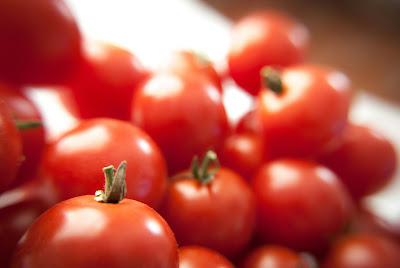Is Iron Enough For You? The Basics of This Essential Nutrient
Is Iron Enough For You?
Iron is a fundamental mineral that supports much of your overall health, vital to the function of haemoglobin which is what keeps red blood cells carrying oxygen throughout the body Without sufficient iron, fatigue, weakness and worse problems may be experienced. How do you know whether you are getting enough?
Why Is Iron Important?
Iron is essential to several vital functions, including:
Oxygen Transport: Hemoglobin in red blood cells relies on iron to carry oxygen from the lungs throughout the body.
Energy Production: Iron helps you produce ATP, the body's main source of energy.
Immune Function: It supports a healthy immune system and helps the body ward off infections.
Brain Function Iron plays a part in cognitive function and concentration.
Iron Deficiency Symptoms
Iron deficiency is one of the most common nutritional deficiencies globally, with key signs including:
Fatigue and weakness
Pale skin
Shortness of breath
Dizziness or headaches
Cold hands and feet
Your nails falling off, or losing hair more slowly than before
If you are seriously deficient in iron this can lead also to anemia. Anemia is characterized by red blood cells failing to carry enough oxygen around the body properly because of insufficient haemoglobin - too few healthy red cells means inefficient transfer of oxygen. It is the leading cause of lower socioeconomic groups but in more affluent people can put additional strain on health services through increased hospital admissions and use of blood transfusions all those other health problems that arise when your body doesn't get enough oxygen in a day! Needless to say this costs money from taxes which should be spent infinite
ely better elsewhere
How Much Iron Do You Need?
Recommended daily intake (RDI) varies depending on your age, gender, and what you eat for a living:
Men (19-50 years): 8 mg per day
Women (19-50 years): 18 mg per day (because of menstruation)
Pregnant women: 27 mg per day
Postmenopausal women and older adults: 8 mg per day
Best Iron Sources In food Heme: there are two kinds of dietary iron
Heme Iron (from animal sources) – Easily absorbed by the body. Found in:
- Red meat (beef, lamb, pork)
- Poultry (chicken, turkey)
- Fish and seafood (salmon, tuna, clams)
Non-Heme Iron(from plant-based sources) – Not as easily absorbed. Found in:
- Lentils and beans
- Spinach and leafy greens
- Tofu and soy products
- Nuts/seeds etc.
- Fortified cereals/whole grains
Iron Absorption Boosters
Some things affect how well your body will take up some of that iron when other happenings are less than ideal- they can even help! Here's how to help get more out of your next iron-rich meal:
Vitamin C can boost absorption. To raise the benefit of your food with high iron content, try adding to it some fruit or vegetable that is rich in citrus such as lemons and oranges or maybe even tomatoes.
Calcium and tea and coffee consumption inhibit absorption. So everything mixed with coffee is not a good idea in the morning other time either. Tea or iced tea too.
Should You Take an Iron Supplement?
If you are not getting enough iron from food, you may need to take supplements. But too much iron can be damaging, leading to problems such as constipation, nausea and organ injury. Medical advice is always somewhere nice before going ahead with iron supplements. Thank you for this
contribution.
Final Thoughts
Iron is a vital nutrient that ensures your body has the energy and proper function to function properly. If you think that you might be lacking in some way, consider altering what you eat or talking to a doctor about supplements for the missing nutrient. By keeping track of this particular intake, you can continue on with good general health and well being.ださいWhat are your thoughts on iron intake? Why are they sponsored?




Comments
Post a Comment